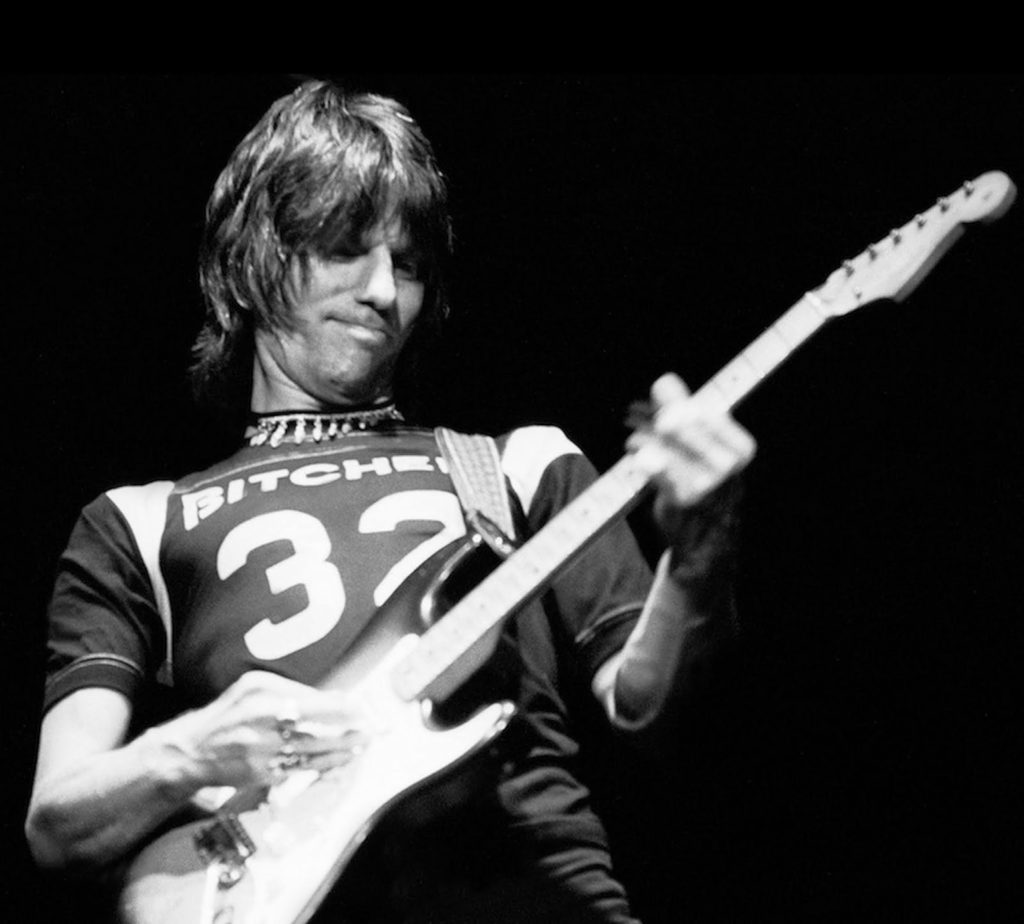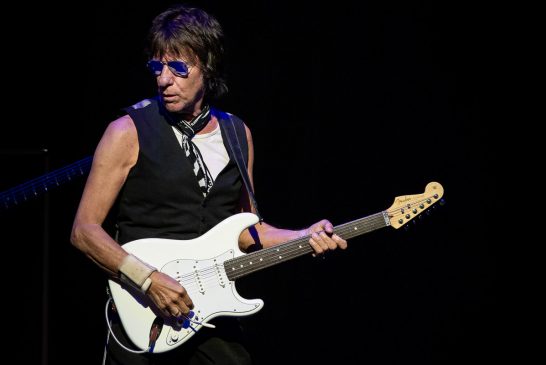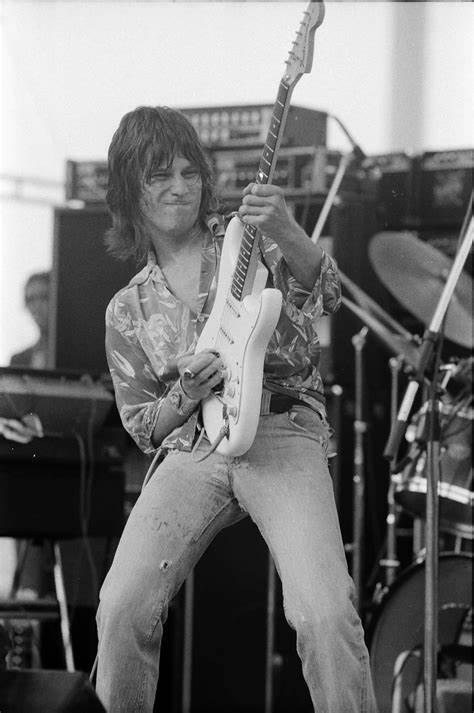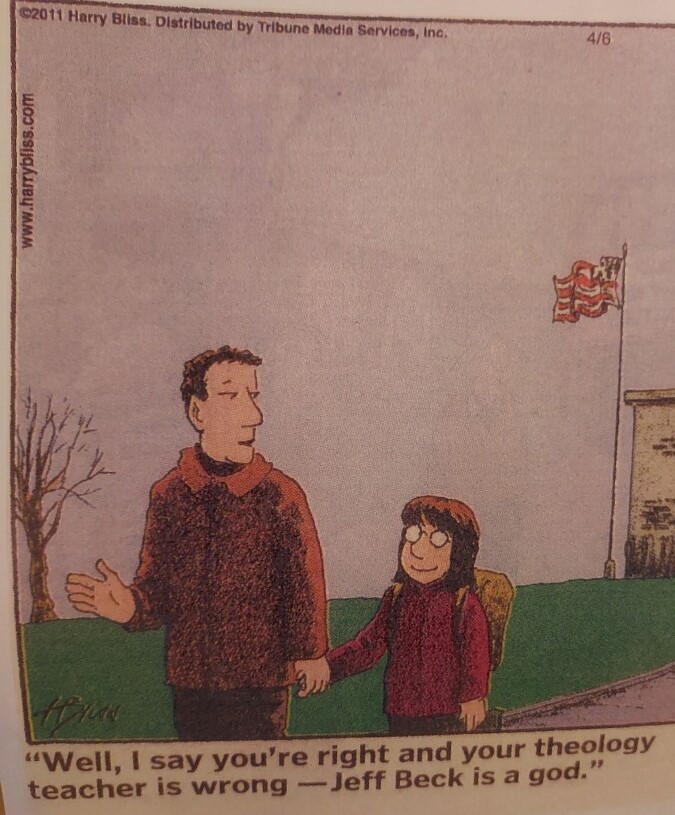WRTC hosts began airing Jeff Beck tributes following the confirmation of the passing of the innovative guitarist at the age of 78 on Jan. 10.

The Jan. 21 edition of Greasy Tracks presented a three-hour spotlight on Beck, including interviews with some of those who knew and worked with him as well as music from across his diverse catalog.
Check out the archive, while playlists are here. The Hartford Courant reported how WRTC and others in the local music community responded to Beck’s passing.
There were interviews with Johnny A, Jennifer Batten, Vinnie Colaiuta, Steve Cropper, Jan Hammer and Don Nix. Mambo Sons guitarist Tom Guerra guest hosted.
Beck’s ability on the fretboard garnered widespread attention when he joined the Yardbirds in 1965 as Eric Clapton exited to join John Mayall’s Bluesbreakers. Before leaving in 1966, Beck’s remarkable playing had fostered a whole new, more varied and certainly genre-bending sound for the Yardbirds.

Like many of Beck’s musical relationships, his term with the Yardbirds was short-lived as he was dismissed from the band while on tour in the United States. Despite the crushing low of being without a band and technically jobless, Beck would go on to do what would be characteristic of him over the next five-plus decades: reinvent himself as a player.
After releasing a handful of singles, he linked up with out-of-a-job singer Rod Stewart, Beck would assemble a new band including the highly sought after session pianist Nicky Hopkins along with Ronnie Wood (bass) and Micky Waller (drums). He released his debut solo album, Truth, in July 1968, ushering in a new, heavy blues sound that would jumpstart such bands as Led Zeppelin who released their debut the following year.

The bulk of that line-up released Beck-ola a year later as the Jeff Beck Group, but by 1970, Beck had changed the line-up. Continuing on the blues-based path, but one accented by a hint of things to come as Beck started incorporating a more soulful and funky feel to his sound.
Spurred by Billy Cobham’s Spectrum, Beck entered the mid-1970s with the heavy blues sound well in the past as he now favored jazz fusion.
His curiosity would lead him to blaze new trails as a guitarist, collaborate with scores of top musicians over the year and ultimately, be awarded eight Grammy Awards.

